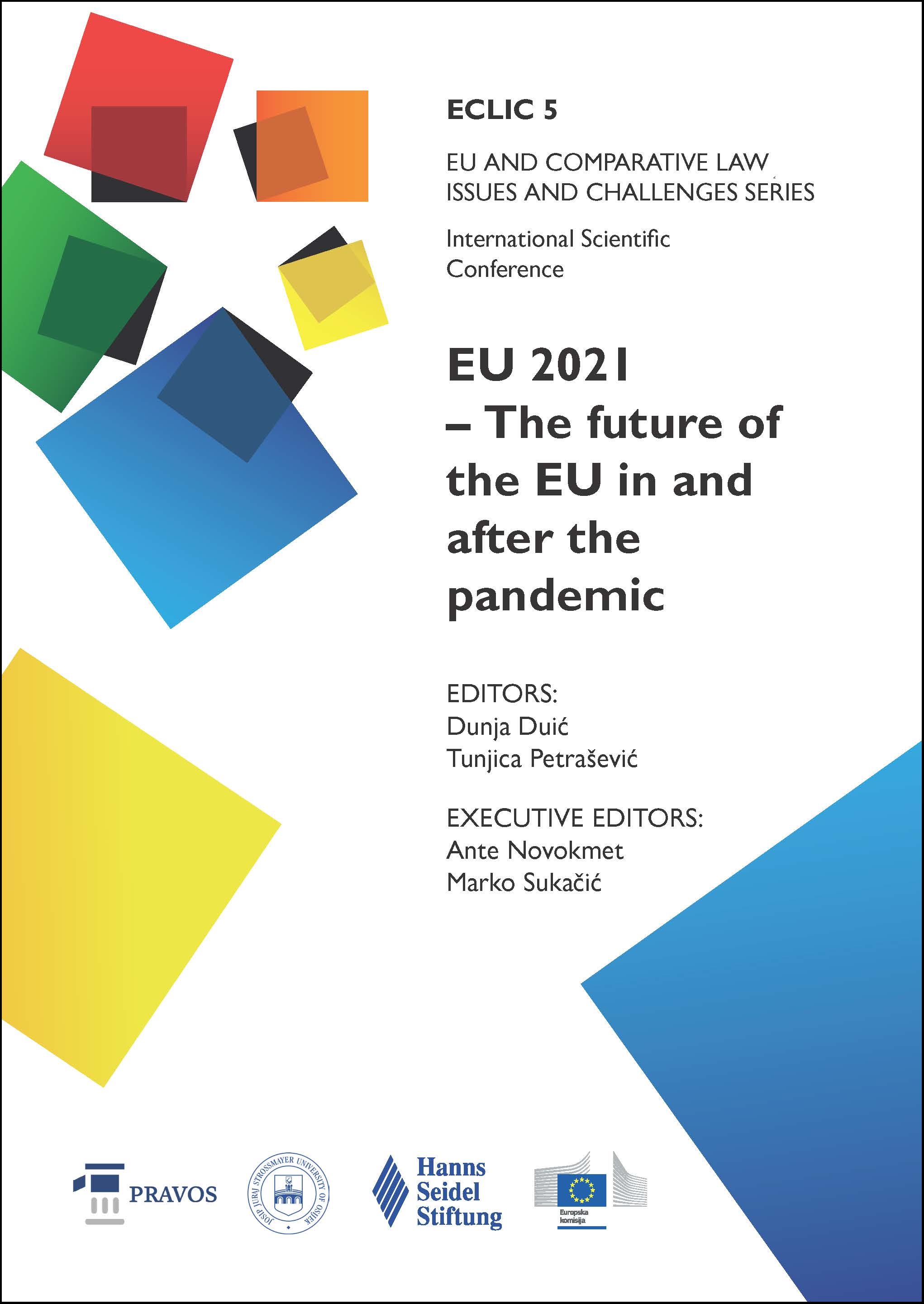“WOULD MONEY MAKE A DIFFERENCE?”
HOW EFFECTIVE CAN THE RULE-OF-LAW-BASED PROTECTION OF FINANCIAL INTERESTS IN THE EU STRUCTURAL AND ENLARGEMENT POLICY BE?
DOI:
https://doi.org/10.25234/eclic/18362Abstract
In recent years, the rule of law and, especially, its “proper” implementation has become one of the most debated topics in Europe in recent years. The “Big Bang Enlargement” marked the beginning of dilemmas whether the new EU Member States fulfil the necessary rule of law criteria and opened the way for divergent views on how to implement TEU Article 2 values in practice. Furthermore, constant problems and difficulty of the candidate countries to fulfil the necessary rule of law criteria added to the complexity of the problem. In turn, the European institutions have tried to introduce a series of mechanisms and procedures to improve the oversight and make the states follow the rules - starting from the famous Treaty on the European Union (TEU) Article 7, the Rule of Law Mechanism, annual reports on the rule of law and the most recent Conditionality Regulation. The Conditionality Regulation was finally adopted in December 2020 after much discussion and opposition from certain EU Member States. It calls for the suspension of payments, commitments and disbursement of instalments, and a reduction of funding in the cases of general deficiencies with the rule of law. On the other hand, similar provisions were laid out in the February 2020 enlargement negotiation methodology specifying that in the cases of no progress, imbalance of the overall negotiations or regression, the scope and intensity of pre-accession assistance can be adjusted downward thus descaling financial assistance to candidate countries. The similarities between the two mechanisms, one for the Member States, the other for candidate countries shows an increased sharing of experiences and approaches to dealing with possible deficiencies or breaches of the rule of law through economic sanctioning, in order to resolve challenges to the unity of the European union. The Covid-19 pandemic and the crisis it has provoked on many fronts has turned the attention of the Member States (i.e. the Council) away from the long running problematic issues. Consequently, the procedures against Poland and Hungary based on the Rule of Law Mechanism have slowed down or become fully stalled, while certain measures taken up by some European states have created concerns about the limitations of human rights and liberties. This paper, therefore, analyses the efforts the EU is making in protecting the rule of law in its Member States and the candidate countries. It also analyses the new focus of the EU in the financial area where it has started to develop novel mechanisms that would affect one of the most influential EU tools – the funding of member and candidate countries through its structural and enlargement policy. Finally, it attempts to determine and provide conclusions on the efficiency of new instruments with better regulated criteria and timing of activities will be and how much they would affect the EU and its current and future member states.
Downloads
Published
How to Cite
Issue
Section
License
Copyright (c) 2021 Aleksandar-Andrija Pejović

This work is licensed under a Creative Commons Attribution-NonCommercial 4.0 International License.
Authors retain the copyright on the papers published in the Journal, but grant the right of first publication to the Journal. Papers accepted for publication or already published in ECLIC of the Faculty of Law in Osijek may be published by the author(s) in other publications only with proper notice of its previous publication in ECLIC.


